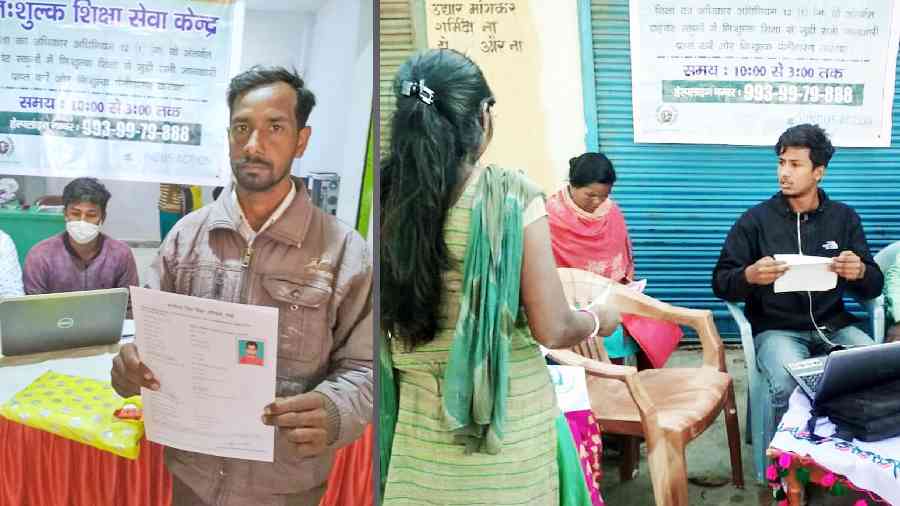Implementation of the provision of the Right to Education Act 2009 in Jharkhand is very poor as far as providing education to children belonging to the weaker sections of society is concerned, with more than 94 per cent of seats reserved for them in private schools lying vacant.
Section 12(1)(c) of the act mandates unaided schools to reserve 25 per cent of the entry-level seats (pre-primary or Class I) for children from economically weaker sections and disadvantaged groups in the neighbourhood and provide free and compulsory elementary education (Classes I-VIII) until its completion.
According to section 12(2) of the act, the Centre and state will reimburse the expenditure to the school with a ratio of union: state funding as 60:40.
“Even more than 10 years after the formation of the act, its implementation is full of systematic and administrative flaws, resulting in the majority of the seats remaining vacant every year and children being deprived of their rights,” said Jharkhand RTE Watch director Hasan Al Banna.
The government data shows the total number of seats under section 12 (1)(c) of the RTE Act 2009 in Jharkhand is 24,347. So the number of seats occupied in a decade should have been 2,43,470 but according to the report of the project approval board of the education ministry, only 14,169 children are presently studying, which means over 94 per cent of seats remain vacant across the state.
“Around 2,29,301 children from STs, SCs, OBCs and other economically weaker sections are deprived of the benefit of the RTE act. What remains a pertinent question is that despite receiving a high number of applications every year, against the available reserved seats, why is the rejection percentage still high?” questioned Hasan.
He said that according to the data acquired from RTI replies, over 89 per cent of applications in the year 2019-20 and 76 per cent of applications in 2021-2022 were rejected in the Ranchi district.
“The high rejection rate costs many underprivileged and deserving children their right to education and possibly their chances of a better future,” he said.
Sneha Shahdeo, a member of Jharkhand RTE watch, claimed: “Needless to say, the mandatory criteria of admitting children from disadvantaged children and weaker sections of the society in 25 per cent reserved seats at entry-level has not been applied in the majority of private schools. As a result, Jharkhand has the lowest number of private schools registered under the RTE Act 2009 in comparison to other states such as Chhattisgarh, Odisha, Bihar, Rajasthan and Andhra Pradesh.”
According to the statements in the Lok Sabha in August 2021, Jharkhand has only 383 private schools registered under the RTE Act 2009 in 2020-2021 which is far less than Bihar, Chhattisgarh and Odisha.
Rajesh Kumar Mahato, an applicant’s father, while addressing the media in Ranchi revealed: “Although the DSE office, Ranchi, officially ordered Delhi Public School (DPS) Ranchi for the eighth time regarding the admission of the 15 selected applicants, no action has been taken yet from the school’s end. Therefore in absence of any other alternative, we moved to Jharkhand High Court, which issued a notice to DPS Ranchi and Jharkhand government on January 26 this year.”
The next date of hearing is scheduled on February 21.
Laxmi Devi, the mother of another applicant, said: “There was a complete lack of communication and response from the school during the entire admission process. Additionally, we have not been provided with any other mechanisms to track the admission process, which leaves us in a state of ambiguity.”
“Given that the admission process for the next session is about to start, the Right to Education Campaign wants to make sure that in the upcoming academic session, no seat under Section 12(1) (c) under the Right to Education Act 2009 remains empty. Therefore, we urge the government for systematic implementation of the policy,” said Hasan.










